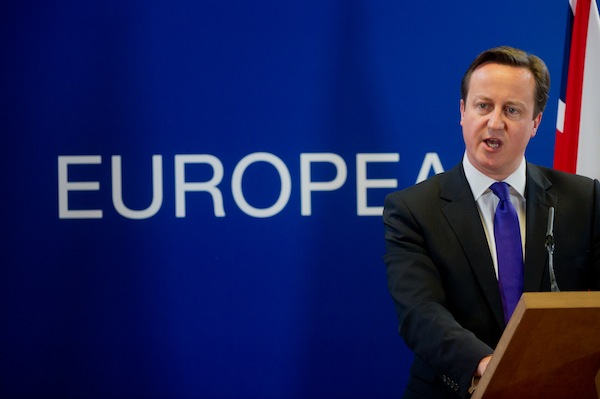Sometime in the next nine weeks David Cameron will announce that if re-elected, he would seek to renegotiate the terms of Britain’s EU membership and then put the results to the public. I understand that the current plan is to have a referendum offering a choice between the new terms and out.
Cameron believes that with time, he can secure far more satisfactory terms of membership for Britain. He also reasons that this announcement — the formalisation of the new terms, fresh consent that he talked about again at PMQs — will reassure his own eurosceptics. Conservative strategists also hope that this should stem the tide in support for UKIP before the 2014 European elections. As one of them said to me, coming third behind UKIP in that poll would create the ‘mother of all party management issues’.
This strategy, though, isn’t without risk. Some eurosceptics will complain that the fact the referendum is on the other side of the election makes the pledge meaningless. I don’t think this is a fair criticism: Cameron is in a coalition and even if he wasn’t, he’d be hard pressed to guarantee completion of a renegotiation before 2015.
More of a worry is that Cameron’s European strategy isn’t apparent. We don’t yet know what kind of membership of the EU Cameron wants for Britain. Given both how eurosceptic the Tory party now is and that Cameron has repeatedly said he doesn’t want Britain to leave the European Union, he’ll have to succeed in bringing back a whole slew of powers if he is to be able to rally his party behind the new terms.







Comments